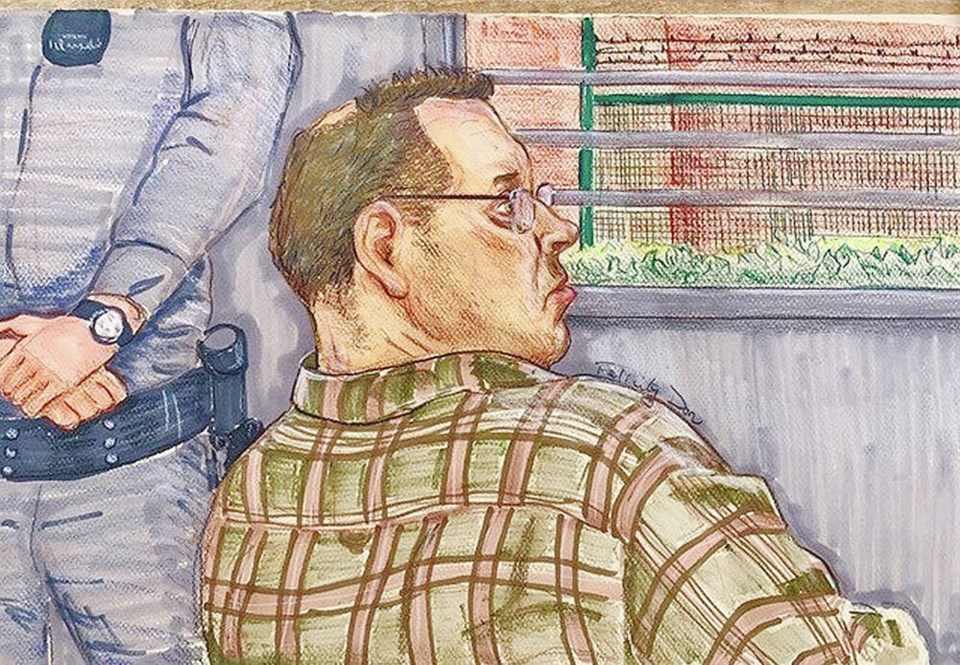Amendments to B.C.’s Name Act expected to pass this week will ensure that people such as Reena Virk killer Kelly Ellard and child-killer Allan Schoenborn will no longer be able to legally change their names.
B.C. Health Minister Adrian Dix introduced the amendments Monday after it was revealed last month that Schoenborn, who changed his name in 2021 to Ken John Johnson, was fighting to keep his new name from being publicized.
Schoenborn was found not criminally responsible for the 2008 murders of his three children — ages 10, eight and five — and since then has been living at the Forensic Psychiatric Hospital in Coquitlam with unescorted community leave privileges.
Dave Teixeira, a spokesman for the children’s family, said on social platform X that Schoenborn’s new name is Ken John Johnson. B.C. Vital Statistics released the name change certificate to Teixeira because he’s an “interested party.”
“This bill will prevent convicted criminals and individuals who have committed offences causing serious harm to others from evading accountability and avoiding the negative consequences of their actions by legally changing their names,” said Dix as he introduced Bill 26, the Name Amendment Act, for a first reading.
Currently, anyone can seek to have their name legally changed under the Name Act, including people who have committed offences that cause serious harm to others.
“Allowing these individuals to hide their identity through a name change is extremely troubling to victims and their families and can result in safety concerns for members of the public,” said Dix.
The bill will amend the Name Act so a person who has been convicted of a certain offence, declared to be a dangerous or long-term offender, or found not criminally responsible for an offence due to a mental disorder will be prohibited from making a legal name change.
Dix, in an interview, said those serious crimes will include murder, sexual assault and sexual crimes against children. He noted the focus is on the offence, not the conviction, “so it will not only include those convicted but those not guilty by reason of a mental disorder.”
A woman who survived domestic violence, for example, would still have the right to legally change her name.
The first reading of Bill 26 was passed Monday and “we expect it to pass this week” as the legislature session ends on Thursday, said Dix.
B.C. Premier David Eby pledged last month to re-examine the rules after it was revealed Schoenborn was trying to keep his new name from being publicized in future legal proceedings.
“Nobody should be able to evade accountability for their criminal activity by changing their name in this province and that includes Mr. Schoenborn, and anybody else,” Eby told media. “When you engage in a heinous act it shouldn’t be avoided by simply changing your name.”
Eby had earlier said it was B.C.’s Deregulation Statutes Amendment Act introduced by BC United Leader Kevin Falcon in 2002 that allowed name changes to be made in 2011 without being made public. Before that, changes would be published in the B.C. Gazette.
Falcon fired back that it was the current government that allowed Schoenborn to change his name. The party said Vital Statistics still has authority to deny a name change sought for improper or objectionable use.
Last month, Falcon introduced a near identical private member’s bill to prevent dangerous offenders from legally changing their names.
BC United said it was glad to see the government close the loophole.
The name-change prohibition will apply to adult offenders — those 18 and older — as well as to young offenders who are convicted of prescribed offences and sentenced as adults.
Under the amended law, the Vital Statistics Agency will be able to request, receive and review the results of criminal record checks for applicants who seek to change their names.
The amendment would not apply retroactively to those who have already changed their names.
Ellard, who was convicted of drowning Reena Virk in the Gorge Waterway in November 1997, changed her name to Kerry Marie Sim and is on day parole. Vince Li, who was found not criminally responsible after he beheaded Tim McLean on a Greyhound bus in 2008 and was released in 2017, changed his name to Will Baker.



